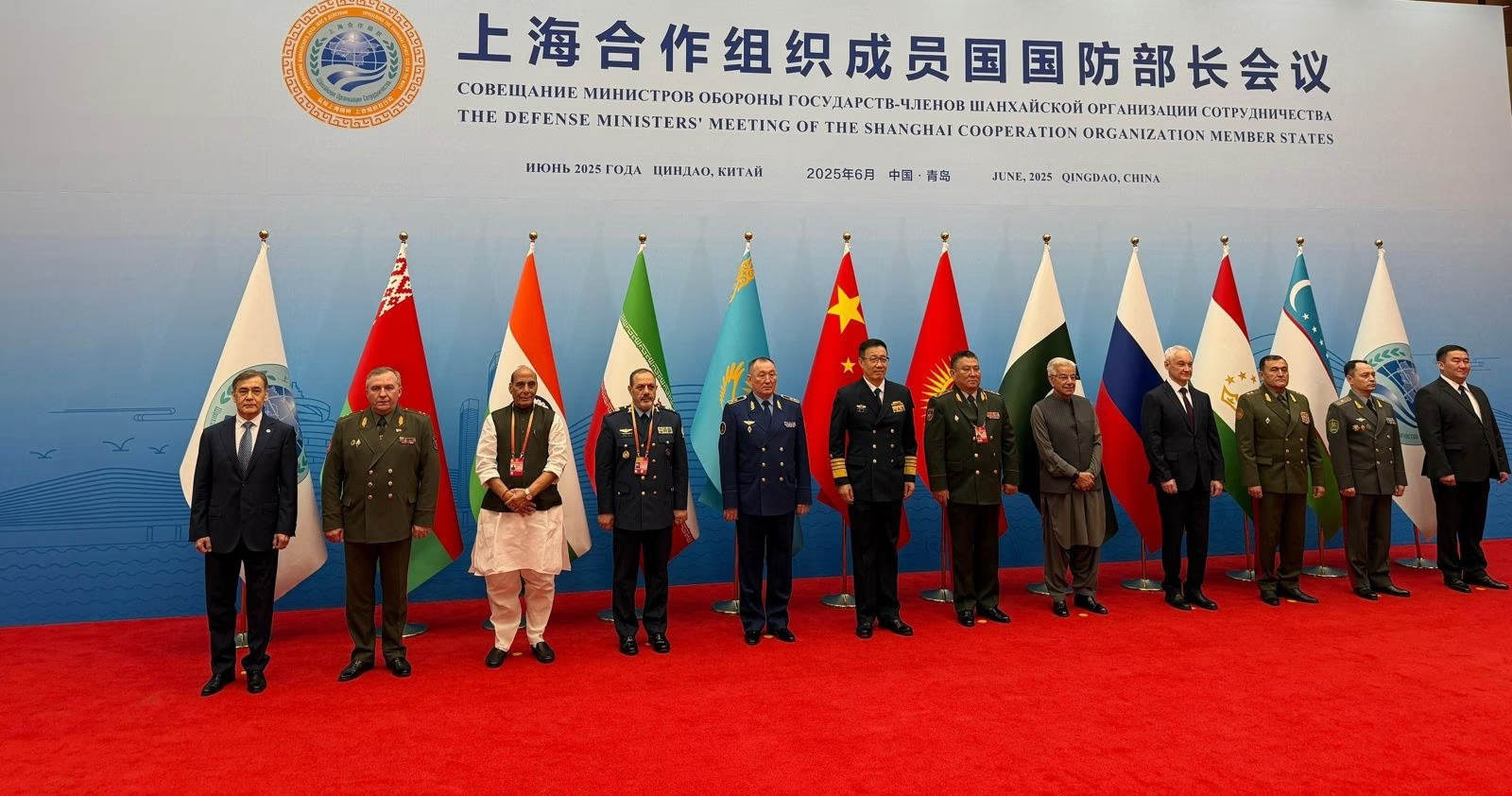Defense Minister Rajnath Singh participated in the Shanghai Cooperation Organization (SCO) meeting in Qingdao, China. This marks the first visit by India's defense minister to China following the military standoff at the Line of Actual Control (LAC) in eastern Ladakh and the subsequent strain in relations. During this visit, Rajnath Singh addressed key issues such as terrorism, security, and peace. Pakistani Defense Minister Khawaja Asif was also present at the meeting, where Rajnath made a strong rebuttal against terrorism.
Refusal to Sign Joint Statement
Defense Minister Rajnath Singh firmly presented India's stance on terrorism and Pahalgam during the meeting. As a result, no joint statement or protocol was released after the gathering. While Pakistan and China were attempting to divert focus from terrorism, Singh declined to sign the joint document, which would have weakened India's position. No bilateral discussion took place between Singh and Pakistan's defense minister during the meeting.
Read More:
Rajnath Singh held a mirror up to neighboring Pakistan, assertively stating that peace and prosperity cannot coexist with non-state players and terror groups wielding weapons of mass destruction (WMD). Decisive action is crucial to tackle these threats, and collective security demands a united fight against these evils.
Criticism of Pakistan
On Pakistan-sponsored terrorism, Singh emphasized, 'It is imperative that those who sponsor, nurture, and use terrorism for their selfish ambitions face the consequences. Some countries employ cross-border terrorism as a policy tool and provide shelter to terrorists. There ought to be no place for such double standards, and the SCO should not hesitate to criticize such nations.

Source: aajtak
Regarding the Pahalgam terror attack, Singh noted, 'On April 22, 2025, The Resistance Front (TRF), a terrorist group, launched a heinous attack on innocent tourists in Pahalgam, Jammu and Kashmir, India. This act claimed the lives of 26 innocent civilians, including one Nepalese citizen. Victims were profiled and shot based on their religious identity. The Resistance Front, a proxy of the United Nations-designated terrorist organization Lashkar-e-Taiba (LeT), claimed responsibility for the attack.'
Praise for Operation Sindoor
Rajnath Singh highlighted that the pattern of the Pahalgam terror attack aligns with previous Lashkar-e-Taiba assaults in India. Exercising its right to defend against terrorism, India successfully launched Operation Sindoor on May 7, 2025, to dismantle cross-border terrorist bases.
Singh emphasized the need for accountability for perpetrators, organizers, financiers, and sponsors of reprehensible acts of terrorism, including cross-border terrorism. Any act of terrorism is a crime and wrong, irrespective of its goal, when and where it occurs, or whoever supports it. This menace must be condemned openly and in the strongest terms.
Emphasis on Regional Stability
The Defense Minister underscored regional stability, asserting India's commitment to enhancing connectivity with Central Asia. Such connectivity not only boosts mutual trade but also builds trust. However, it's essential to adhere to SCO Charter principles, particularly respecting the sovereignty and territorial integrity of member states.
Rajnath assured that India remains consistent and robust in supporting peace, security, and stability in Afghanistan. India's immediate priorities include providing humanitarian assistance to Afghans and contributing to Afghanistan's overall development. As Afghanistan's largest regional development partner, India continues to implement capacity-building initiatives for the Afghan people.
Read More:
In a message of global solidarity, he noted that no nation, regardless of its size or power, can operate alone. The essence of global order or multilateralism is the premise that nations should collaborate for mutual and collective benefit. This sentiment echoes our ancient Sanskrit maxim "Sarve Jana Sukhinō Bhavantu," meaning peace and prosperity for all.




